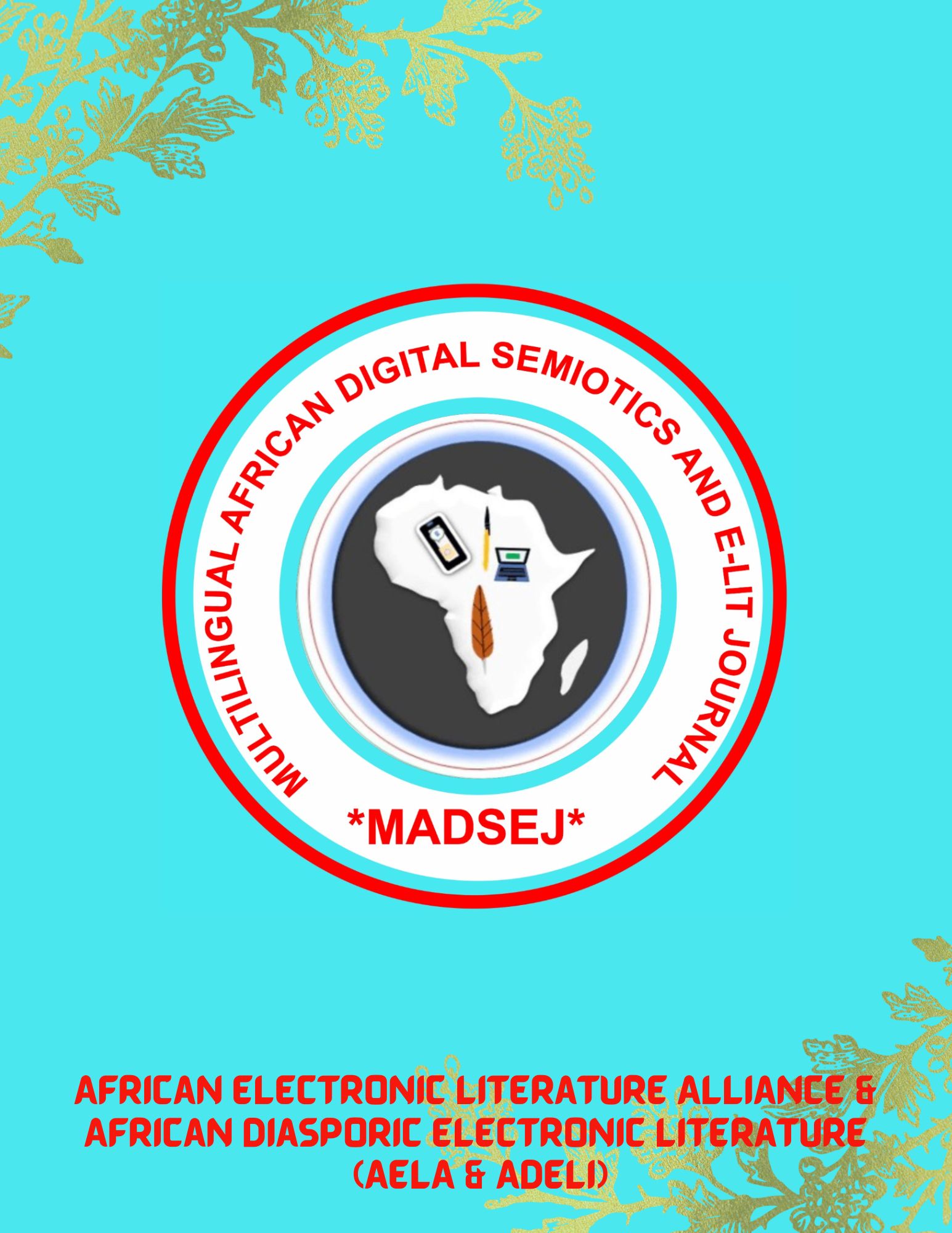Migration and Literature: A Comparative Study of Chimamanda Ngozi Adichie and Ben Okri in Digital Humanities
Keywords:
Miigration, Nigerian Diaspora, Chimamanda Ngozi Adichie, Ben Okri, Digital Humanities, Comparative literature, Data visualisationAbstract
This study examines the impact of migration on the publishing timelines, thematic focus, awards, and translations of Nigerian diaspora writers Chimamanda Ngozi Adichie and Ben Okri. Employing a mixed-method approach that integrates qualitative and quantitative analyses, the research explores how migration influences their literary journeys and expands the global reach of Nigerian literature. Utilizing digital humanities tools such as KnightLab’s TimelineJS, Flourish, and Google Sheets, the study visualizes data from reputable sources like Amazon and Goodreads to analyze each author’s international achievements. Findings indicate that migration significantly shapes Adichie’s and Okri’s thematic explorations, addressing complex issues of identity, race, and cultural belonging. This research demonstrates how digital visualization offers insights into the intersection of migration and literary success, illustrating how these authors navigate and portray diasporic identities. Ultimately, the study contributes to African literary studies by highlighting the role of migration in enhancing the global influence and thematic depth of Nigerian literature.
Downloads
References
Achebe, Chinua. No Longer at Ease. Heinemann, 1960.
Achebe, Chinua. Things Fall Apart. Heinemann, 1958.
Adichie, Chimamanda Ngozi. Purple Hibiscus. Algonquin Books, 2003.
Adichie, Chimamanda Ngozi. Half of a Yellow Sun. Knopf, 2006.
Adichie, Chimamanda Ngozi. The Thing Around Your Neck. Knopf, 2009.
Adichie, Chimamanda Ngozi. Americanah. Knopf, 2013.
Adesanmi, Pius, and Charles Dunton. “The Politics of Postcolonial Modernity and the Shit of Nigerian Literature.” Research in African Literatures, vol. 39, no. 4, 2008, pp. 1-15.
Ajeluorou, Anote. “Atogun, Adebayo Task Local Publishers on Nigerian Writers.” The Guardian Nigeria News - Nigeria and World News, 10 June 2017, https://guardian.ng/art/atogun-adebayo-task-local-publishers-on-nigerian-writers/.
Awelewa, Abayomi. Adichie’s Half of a Yellow Sun. Leads African Studies Bulletin 78: LUCAS University of Leeds, 2016/2017, pp. 105-117, https://lucas.leeds.ac.uk/article/adichies-half-of-a-yellow-sun-abayomi-awelewa/.
Ayodeji, Ismail S. “Migration, Post-Colonial Diaspora and the Frontiers of Nigerian Literature in English.” HIRENTHA Journal of the Humanities, vol. 2, no. 1, 2016, pp. 71-92, https://www.researchgate.net/publication/349959381_Migration_Postcolonial_Diaspora_and_the_Frontiers_of_Nigerian_Literature_in_English.
Egbunike, Nkem. “The Been-To Paradigm in Early Nigerian Fiction.” Matatu: Journal for African Culture and Society, vol. 45, no. 1, 2014, pp. 217-234, https://brill.com/view/journals/mata/45/1/article-p217_14.xml.
Ezema, Izuchukwu. “75% of Books Published by Nigerian Companies Are Printed Abroad.” Vanguard, 10 May 2010, https://www.vanguardngr.com/2010/05/75-of-books-published-by-nigerian-companies-are-printed-abroad/.
Griswold, Wendy. “The Nigerian Novel.” Comparative Literature Studies, vol. 43, no. 4, 2006, pp. 522-532.
Hewett, Heather. “Adichie's Challenge to Achebe: Gender and Representation in Nigerian Literature.” African Literature Today, vol. 26, 2005, pp. 79-90.
Ibukun, Abiola Y. “Nigerian Authors Look West to Gain Their Fame.” Arab News, 26 Jan. 2012, https://www.arabnews.com/node/404913.
Okri, Ben. Flowers and Shadows. Longman, 1980.
Okri, Ben. The Famished Road. Jonathan Cape, 1991.
Opeibi, Timothy. “Digitizing the Humanities in an Emerging Space: An Exploratory Study of Digital Humanities Initiatives in Nigeria.” The Digital Black Atlantic, 2021, pp. 162-167, https://www.upress.umn.edu/9781517910808/the-digital-black-atlantic/.
Rapheal, Allwell. “Why We’re Pushing New African Stories Abroad.” The Sun Nigeria, 2020, https://sunnewsonline.com/allwell-uwazuruike-why-were-pushing-new-african-stories-abroad/. Accessed 19 Aug. 2024.
Rebekah, C. “History, Humour and Spirituality in Contemporary Nigeria: An Interview with Okey Ndibe.” Wasafiri, vol. 36, no. 1, 2021, pp. 25–31, https://doi.org/10.1080/02690055.2021.1838795.
Shercliff, Emma. “Nigerian Authors in the UK: Perspectives on Diaspora Literature.” African Studies Review, vol. 58, no. 3, 2015, pp. 9-15. https://brill.com/view/journals/logo/26/3/article-p51_8.xml
Sasu, Doris Dokua. “Nigeria - Migration Rate 2021.” Statista, 2023, https://www.statista.com/statistics/1233163/net-migration-rate-in-nigeria/.
Thomas, Abigail. “Transnationalism in Nigerian Literature: Mobility and Identity.” Journal of Postcolonial Writing, vol. 45, no. 3, 2009, pp. 230-242, https://doi.org/10.2307/217214.
DIGITAL TOOLS USED FOR DATA VISUALIZATION
1. Northwestern University Knight Lab- https://knightlab.northwestern.edu/
2. Daria Tunca’s Digital Corpus - Center for Teaching and Research in Post-colonial Studies (CEREP) University of Liège- http://www.cerep.ulg.ac.be/bibliographies/
John Henry’s Nig-ewriters Coprus https://nig-ewriters.rarebook-ubfc.fr/writers-journey/

Published
Data Availability Statement
Issue
Section
Categories
License
Copyright (c) 2024 Henry Chukwudi John, Abayomi Awelewa

This work is licensed under a Creative Commons Attribution 4.0 International License.
-
Copyrights remain with the authors, who grant the journal the right of first publishing their submitted manuscripts. All materials published by MADSEJ is under an Attribution 4.0 International Creative Commons License which make them accessible to the public and to be shared since authorship and first publication credits are cited.
-
The Attribution 4.0 International (Creative Commons) allows the copy and redistribution of the material in any medium or format, as well as its adaptation for any purpose, even commercially.
-
Authors are permitted to give contract for non-exclusive distribution of the version of their works published in MADSEJ. For example, distribution in an institutional repository or as a book chapter but the authors should give credit to MADSEJ as the first to publish the manuscripts as well as acknowledge MADSEJ.





